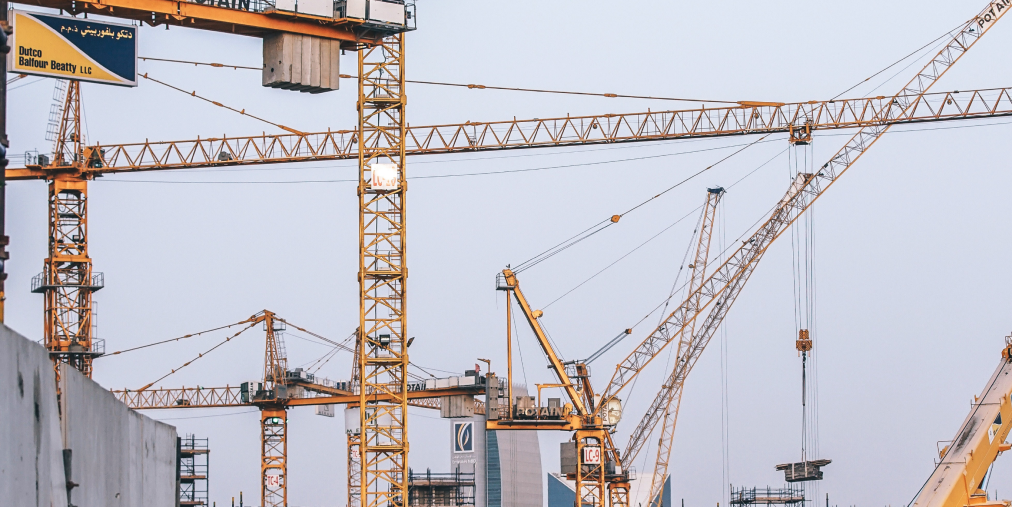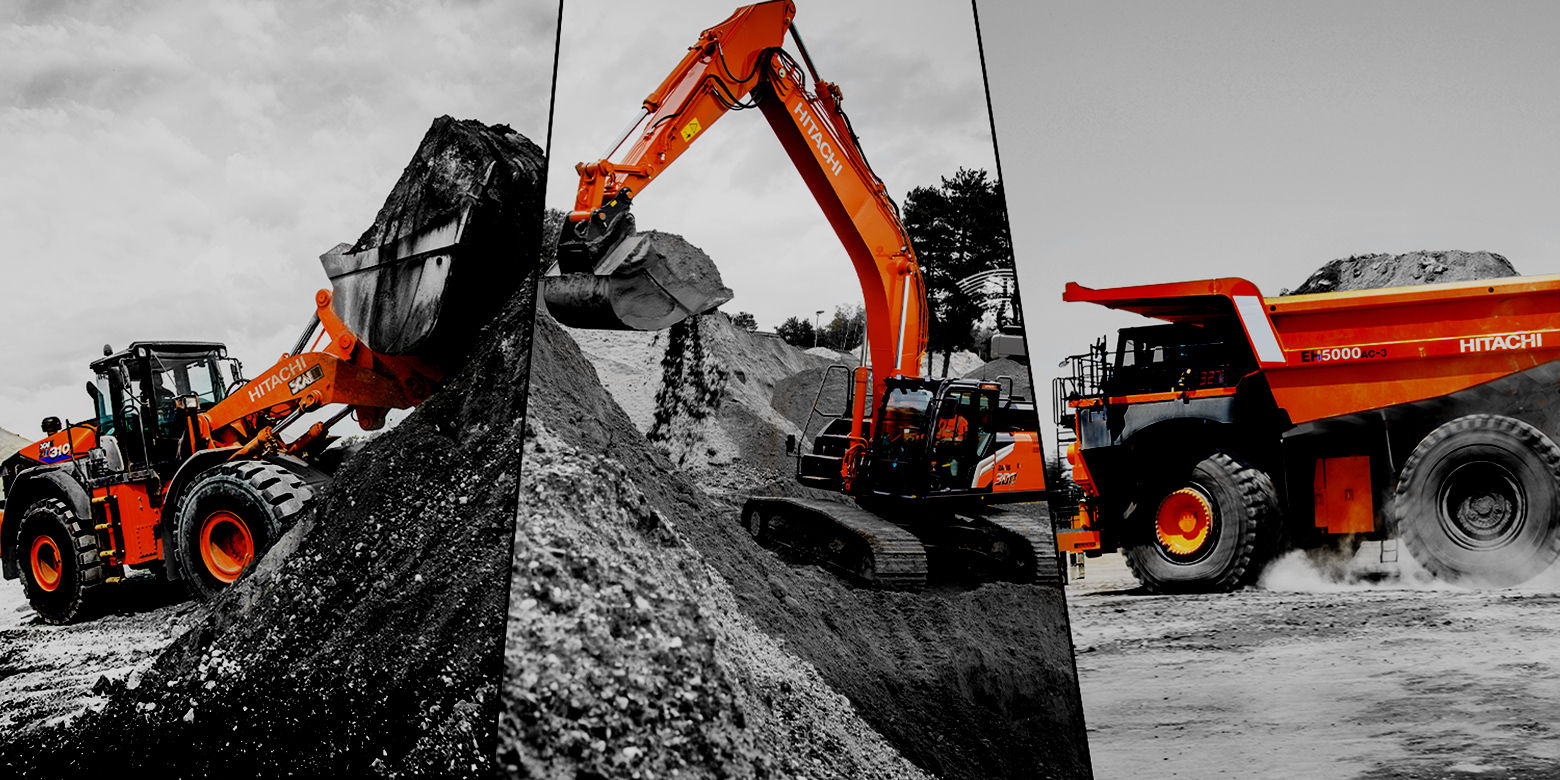Forklift Rental in Tuscaloosa AL: Versatile Lifting Solutions for Your Demands
Checking Out the Financial Perks of Leasing Building And Construction Tools Compared to Owning It Long-Term
The decision between leasing and possessing building and construction tools is essential for economic administration in the industry. Renting deals instant cost financial savings and functional flexibility, allowing firms to assign resources more successfully. On the other hand, ownership features substantial lasting economic commitments, consisting of maintenance and devaluation. As service providers consider these choices, the effect on capital, job timelines, and innovation accessibility becomes significantly considerable. Understanding these subtleties is vital, specifically when taking into consideration just how they align with particular task requirements and economic approaches. What factors should be focused on to make sure optimal decision-making in this complex landscape?

Cost Contrast: Renting Vs. Owning
When evaluating the financial ramifications of possessing versus renting out building and construction tools, a detailed expense comparison is vital for making notified decisions. The option between owning and leasing can dramatically impact a business's bottom line, and comprehending the connected costs is vital.
Renting out construction equipment generally includes reduced ahead of time costs, enabling services to assign funding to other functional requirements. Rental agreements frequently include adaptable terms, allowing firms to gain access to progressed machinery without lasting dedications. This adaptability can be specifically advantageous for short-term jobs or fluctuating workloads. However, rental costs can gather with time, possibly going beyond the cost of ownership if tools is required for an extended period.
On the other hand, possessing building equipment calls for a substantial first financial investment, together with ongoing prices such as insurance policy, depreciation, and funding. While ownership can lead to long-lasting savings, it additionally binds funding and may not provide the exact same level of versatility as leasing. Furthermore, possessing tools demands a commitment to its usage, which may not always line up with task demands.
Ultimately, the decision to lease or have ought to be based upon a detailed evaluation of particular task requirements, economic capability, and lasting calculated goals.

Upkeep Responsibilities and expenditures
The option in between owning and leasing building and construction equipment not just entails monetary considerations but additionally incorporates continuous maintenance expenses and duties. Owning devices requires a substantial commitment to its upkeep, that includes regular assessments, fixings, and potential upgrades. These duties can promptly accumulate, leading to unexpected costs that can stress a budget plan.
In contrast, when leasing tools, upkeep is generally the duty of the rental company. This setup permits contractors to prevent the economic problem connected with damage, as well as the logistical challenges of organizing repairs. Rental arrangements commonly consist of arrangements for upkeep, meaning that service providers can focus on completing projects instead of stressing over equipment problem.
Moreover, the varied series of tools available for rental fee enables companies to pick the current models with sophisticated modern technology, which can improve effectiveness and productivity - scissor lift rental in Tuscaloosa Al. By selecting leasings, companies can prevent the lasting liability of tools depreciation and the linked maintenance headaches. Ultimately, evaluating upkeep expenditures and duties is crucial for making an informed decision regarding whether to possess or rent out construction devices, considerably impacting general project expenses and functional performance

Devaluation Influence On Ownership

A considerable factor to consider in the decision to have construction equipment is the influence of devaluation on overall possession costs. Depreciation stands for the decrease in value of the devices over time, influenced by aspects such as usage, damage, and advancements in modern technology. As devices ages, its market value decreases, which can considerably affect the owner's monetary setting when it comes time to offer or trade the equipment.
For building and construction firms, this devaluation can equate to substantial losses if the equipment is not used to its maximum possibility or if it lapses. Proprietors should account for devaluation in their economic forecasts, which can result in greater overall costs compared to renting out. Additionally, the tax obligation ramifications of depreciation can be intricate; while it might give some tax obligation benefits, these are typically countered by the fact of decreased resale worth.
Inevitably, the burden of devaluation highlights the significance of comprehending the long-term financial dedication involved in possessing construction tools. Firms need to thoroughly assess just how usually they will certainly make use of the tools and the possible financial impact of depreciation to make an educated decision about possession versus leasing.
Economic Versatility of Leasing
Renting building and construction equipment uses substantial economic versatility, permitting business to designate sources a lot more effectively. This flexibility is specifically vital in an industry identified by fluctuating task needs and differing work. By deciding published here to lease, businesses can avoid the significant capital investment required for purchasing devices, maintaining capital for various other operational requirements.
In addition, leasing equipment enables business to customize their tools options to particular project requirements without the lasting commitment related to possession. This indicates that companies can quickly scale their devices inventory click this site up or down based upon current and expected project demands. Consequently, this versatility reduces the danger of over-investment in equipment that might come to be underutilized or outdated in time.
One more monetary advantage of renting out is the potential for tax benefits. Rental settlements are frequently thought about general expenses, enabling prompt tax deductions, unlike depreciation on owned equipment, which is topped numerous years. scissor lift rental in Tuscaloosa Al. This immediate cost recognition can further boost a business's money position
Long-Term Job Considerations
When examining the lasting requirements of a construction company, the decision in between renting out and having equipment becomes a lot more complicated. Secret aspects to think about include project duration, frequency of usage, and the nature of upcoming jobs. For projects with extended timelines, acquiring tools might seem useful because of the capacity for reduced general costs. Nonetheless, if the devices will not be used constantly throughout tasks, owning may bring about underutilization and unnecessary expenditure on upkeep, insurance policy, and storage space.
The building industry is evolving quickly, with brand-new tools offering boosted efficiency and safety and security attributes. This versatility is specifically advantageous for companies that take care of diverse projects requiring various kinds of equipment.
Moreover, economic security plays an important function. Possessing tools usually involves substantial funding financial investment and devaluation problems, while renting enables for even more foreseeable budgeting and capital. Ultimately, the option between renting out and owning must be lined up with the tactical goals of the building company, thinking about both current and anticipated task demands.
Verdict
In final thought, leasing building and construction equipment uses significant monetary advantages over long-lasting ownership. Eventually, the decision to rent out instead than own aligns with the dynamic nature of building and construction projects, allowing for adaptability and access to the newest tools without the economic worries associated with ownership.
As equipment ages, its market worth diminishes, which can dramatically impact the proprietor's monetary placement when it comes time to offer or trade the equipment.
Leasing building and construction equipment offers considerable monetary adaptability, allowing firms to allot sources much more efficiently.In addition, leasing tools allows business to tailor their devices choices to certain task requirements without the i was reading this lasting commitment linked with possession.In verdict, renting building and construction equipment offers considerable financial benefits over lasting ownership. Ultimately, the choice to rent out instead than own aligns with the vibrant nature of building and construction projects, permitting for adaptability and accessibility to the most current devices without the economic burdens connected with ownership.